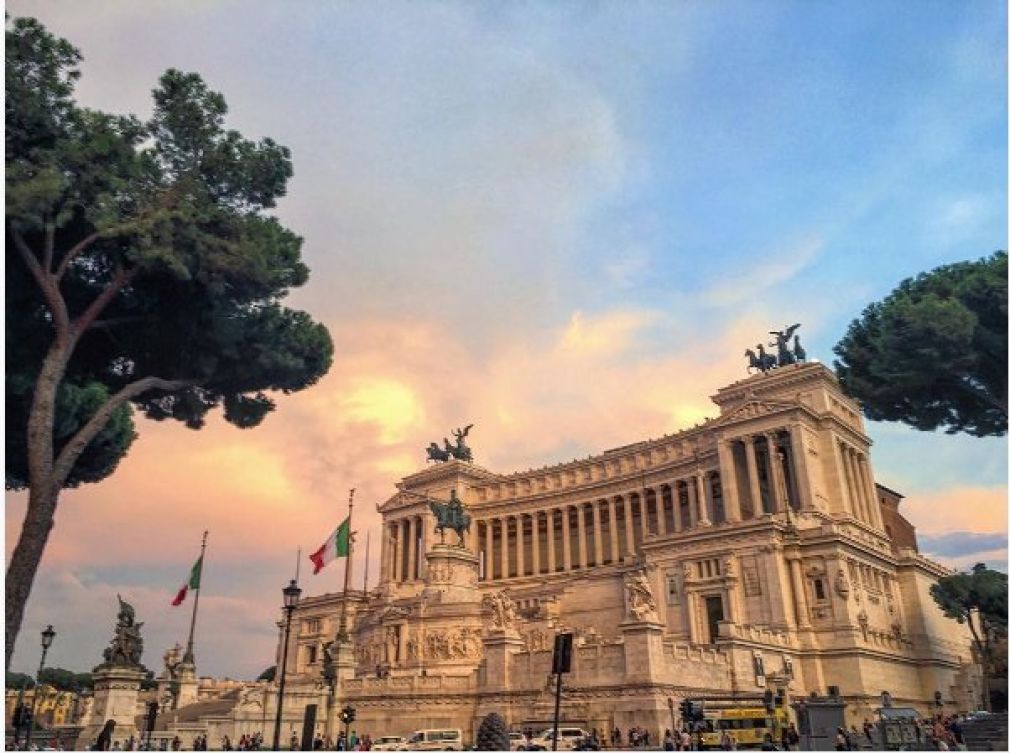By: V4 Agency
In most European countries, the army plays a role in combatting the coronavirus pandemic. In many places, however, troops have also been assisting the work of law enforcement officers for years, because of the terrorist threat.
For years now since the 2015 terrorist attacks, soldiers tasked with strengthening street security have been patrolling in a variety of locations in major European cities. In recent months, national armies have also been deployed in several countries to assist in combating the pandemic.
Italy
The Italian army has been deployed since 2008 to assist with the work of the police. That year, authorities launched Operation Strade Sicure (Safe Streets) to curb the increasing crimewave in Italy’s cities. In 2018, for instance, soldiers were mobilised to secure the shopping streets during the New Year sales, but the presence of troops was also justified by a number of terrorist attacks in Europe.
Soldiers also keep guard outside some popular tourist attractions, such as the Leaning Tower of Pisa or the Basilica of San Petronio in Bologna. In Rome, the military maintains a solid presence around the Colosseum, the Vatican and Piazza Navona. Many visitors are initially taken aback by the sights of the soldiers, especially because they are armed with machine guns.


Authorities also had to rely on the military during the first wave of the coronavirus pandemic to help enforce the curfew and check people’s compliance with the regulations.
France
In France, Operation Sentinelle was launched during Francois Hollande’s presidency, in the aftermath of the 2015 terrorist attacks, with the aim of combating terrorism. 2015 was a particularly tragic year for France, with 12 people shot dead by gunmen in the editorial offices of the satirical weekly Charlie Hebdo, followed by killings in a kosher supermarket, both in January. In November, suicide bombers struck outside the Stade de France – France’s national stadium – during an international football match, while a group of gunmen carried out mass shootings during a concert in the Bataclan Theatre. Following the terrorist attacks, the French president declared a state of emergency and pledged to fight terrorism.
Operation Sentinelle involved the deployment of 10 000 soldiers to the streets in the most sensitive areas across France. The strongest military presence was required in the Ile-de-France region, where authorities deployed 6 000 armed troops, including 2 500 soldiers specifically tasked with ensuring public safety in the capital Paris.
Involving the military is never inexpensive, as revealed in an article published by France Info in early January 2016, costing France one million euros a day to have soldiers in the streets. However, a shop owner told the paper that it was reassuring to have armed men patrolling the streets all day, who sometimes cover as many as 25 kilometres a day with their heavy, 15 kg gear.
During the pamdemic-induced lockdown in the spring, French President Emmanuel Macron also had to rely on the military to oversee compliance with the curfew, maintain safety, and ensure people’s continuous supply.
Belgium
Under Belgium’s Operation Vigilant Guardian, troops have been regularly patrolling the streets of Brussels, Liege and Antwerp, the cities considered most at risk since 2015. Although several NGOs spoke up against the sight of soldiers on the streets, Interior Minister Jan Jambon emhasized that the Belgian government had the right to deploy the armed forces in special circumstances for law enforcement and security purposes. The politician added that the terrorist attacks in Paris and Verviers more than qualified as special circumstances.
According to an article published by RTBF in February 2016, the streets of Brussels and Antwerp were secured by 700 patrolling troops each day, whose job was to assist federal police. After the Paris attacks in November 2015, the country declared a level 4 alert, raising the number of troops patrolling Belgium to 1 250.
Just like in many other European countries, Belgium’s military has also provided assistance to the country’s police in enforcing coronavirus restrictions. The Council of Ministers approved the continued deployment of soldiers, as proposed by former Security and Home Affairs Minister Pieter De Crem and former Defence Minister Philippe Goffin. The move means that authorities can mobilise up to 550 soldiers nationwide, each day. However, according to Goffin, the number of soldiers actually assigned is much lower than that, around 200, with an additional 100 troops – as part of a rapid reaction force – on reserve duty.
Several other European countries have also decided to mobilise their armies as part of their pandemic response. In Spain, troops were deployed both during the first and the second wave of the pandemic, and their job is to enforce the restrictions.
The German government also announced the mobilisation of 15 000 soldiers during the first wave of the pandemic to participate in the response. Last Sunday, that number was raised to 20 000. Defence Minister Annegret Kramp-Karrenbauer said the government could deploy even more troops in a bid to offer further help.
The military supports the work of health authorities. Military hospitals have become involved in civic care and they also help to secure supplies for nursing homes. The defence minister stressed that the army was ready to assist vaccination with its own mobile vaccination centres, and it is also getting ready to participate in the vaccine’s delivery.
The situation is quite similar in the UK. Liverpool has conducted mass testing with the help of some 2 000 troops. The city tested nearly 100 thousand people in ten days, finding 700 who unknowingly had the virus.
In Hungary, the state of emergency has been reintroduced with strict new measures. There is a curfew between 8 pm and 5 am and the military is assisting its enforcement. The army is also involved in maintaining public order and alleviating the pressures of healthcare, where possible.

